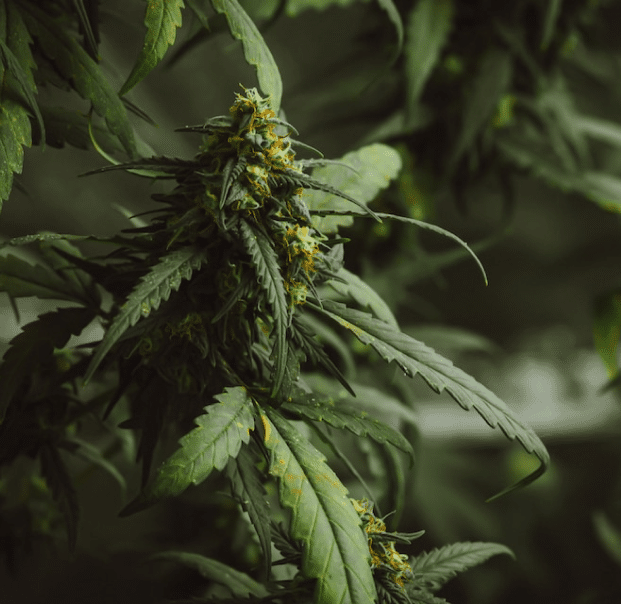How to Get a Cannabis License in Oregon
In Oregon, medical marijuana is regulated by the Oregon Health Authority (OHA). The state implemented the Oregon Medical Marijuana Program (OMMP) to oversee the production, distribution, and use of medical marijuana.
Patients with qualifying conditions can apply for a medical marijuana card, allowing them to purchase and possess cannabis legally. The state has a well-established licensing framework for dispensaries, producers, and processors.
Oregon imposes strict testing requirements on medical marijuana products to ensure quality and safety for patients. This comprehensive guide covers everything you must know about getting a cannabis license in Oregon.
Background
Oregon’s history with medical marijuana traces back to1998, when voters approved Measure 67, establishing the Oregon Medical Marijuana Program (OMMP). Evolving with the times, Senate Bill 1531 in 2013 introduced dispensary regulations. In 2016, the state integrated medical and recreational marijuana programs under the Oregon Liquor Control Commission (OLCC).
Recent adjustments in 2022 prioritize safety, with the OLCC overseeing rigorous testing for contaminants, ensuring the quality of medical and recreational marijuana. Notably, Oregon’s cannabis market, valued at $1.1 billion in 2021, showcases robust growth. The state’s thriving market reflects consumer confidence.
These adjustments align with Oregon’s commitment to maintaining high standards, solidifying its position as an enticing market with a substantial economic impact.
Types of Cannabis Licenses in Oregon
Cultivation Licenses
Permits for growing cannabis, with various tiers based on facility size and growing conditions.
Manufacturing Licenses
Allows for processing cannabis into various products, including extracts and edibles.
Retail Licenses
Enables the operation of dispensaries and delivery services for medical and/or recreational use.
Distribution Licenses
Required for transporting cannabis products between licensed facilities.
Cultivation Licenses
Producer licenses based on canopy size and type. Compliance with OLCC rules required.
Back to the TopManufacturing Licenses
Processor licenses for extracts and edibles. GMP and safety rules enforced.
Back to the TopRetail Licenses
Retailer licenses capped in some areas. Track and trace via METRC required.
Back to the TopDistribution Licenses
No separate distribution license. Licensed businesses may transport.
Back to the TopHow to Obtain a Cannabis License in Oregon
Step 1: Comprehensive Research and In-Depth Preparation
- Market Analysis: Before starting the journey to obtain a cannabis license in Oregon, a thorough market analysis is imperative. Understand the demand for cannabis products, identify target demographics, and assess market trends. This analysis should consider current and projected market conditions to inform strategic decision-making.
- Consumer Insights: Gaining a deep understanding of consumer preferences and behaviors is crucial. Conduct surveys, focus groups, or analyze existing data to comprehend what consumers seek in cannabis products. This insight will guide product development and marketing strategies, ensuring alignment with consumer expectations.
- Regulatory Proficiency: Stay well-versed in Oregon’s cannabis regulations, covering licensing requirements, safety standards, and compliance protocols. This proficiency is vital for crafting a comprehensive and compliant license application.
- Competitive Analysis: A thorough examination of competitors is essential to identify unique selling points and market differentiators. Analyze the strengths and weaknesses of existing cannabis businesses in Oregon to refine your business strategy. This analysis aids in positioning your venture effectively within the competitive landscape.
- Site Selection: Choosing the right location is a critical factor in obtaining a cannabis license. Consider zoning regulations, proximity to target markets, and accessibility. Ensure compliance with state and local regulations regarding the permissible areas for cannabis-related activities. Site selection directly impacts operational efficiency and market reach.
- Risk Assessment: Conduct a comprehensive risk assessment to identify and mitigate potential challenges. Evaluate financial, operational, and regulatory risks that may impact the success of your cannabis business. A well-documented risk assessment demonstrates foresight and preparedness, crucial elements for a successful license application.
- Network Building: Forge essential connections within the marijuana industry by engaging with suppliers, distributors, and regulatory bodies. Actively participate in local communities and industry events, building a robust network crucial for a successful cannabis license application in Oregon.
Step 2: Develop a Solid Business Plan
Draft a robust business plan detailing your target market, financial projections, and marketing strategies.
Step 3: Assemble the Necessary Documentation
Gathering the required documentation is a pivotal step in obtaining a cannabis license in Oregon. Ensure all documents are complete, accurate, and compliant with state regulations. Commonly needed documents include business plans, financial statements, security plans, and details on ownership and personnel.
Step 4: Submitting the Application
- How to Apply for a New License: Navigate the application process by accessing the official Oregon Cannabis Commission website. Complete the online application form, providing comprehensive details about your business, intended activities, and compliance measures. Submit all required documentation electronically.
- How to Renew Your License: For license renewal, submit a renewal application before the expiration date. Update any changes to business operations, personnel, or premises. Ensure continued compliance with state regulations. Failure to renew on time may result in a lapse or loss of licensure.
- Agent Card Requirements: Individuals involved in cannabis operations must obtain an agent card. Fulfill prerequisites such as age verification, criminal background checks, and compliance with eligibility criteria. Agent cards are essential for employees engaged in tasks like cultivation, processing, or retail sales.
- Limitations on Employment: Understand the limitations on employee eligibility, particularly regarding criminal history. Some convictions may disqualify individuals from certain roles within the cannabis market. Compliance with these limitations is crucial for a successful application.
- How to Apply for an Agent Card: Agents must individually apply for cards. Submit personal information, fingerprints, and other required documentation. Compliance with agent card requirements ensures that individuals handling cannabis-related tasks are authorized and meet the state’s standards.
Payment and Fees: Understand the financial commitments for obtaining a cannabis license in Oregon. Anticipate application fees ranging from $1,000 to $5,000, renewal fees averaging $500 to $3,000, and potential additional charges. Timely payment is crucial to avoid processing delays.
Payment and Fees
Note: Fee structures are subject to change. Consult the official Oregon cannabis regulatory website for current fee schedules.
Application Fees
The application fee covers the initial costs associated with processing and reviewing cannabis business license submissions in Oregon. These fees vary depending on the type of license and the size of the proposed operation. It’s essential to ensure all application materials are complete and accurate to avoid delays or additional costs.
License Fees
License fees are required to maintain compliance and secure operating privileges for cannabis businesses in Oregon. These fees are determined based on the license type, such as retail, cultivation, or distribution, and are typically due annually. Staying current with license payments is crucial to avoid penalties or disruptions in business operations.
Application Review and Compliance Inspection
Following submission, applications undergo a thorough review by the Oregon Liquor Control Commission (OLCC). This includes scrutiny of documentation, background checks, and adherence to regulatory requirements. Successful applicants proceed to the next phase – compliance inspections to ensure operational adherence.
Post-Application Steps
After approval and compliance inspections, implement the approved business plan. This involves setting up operations, securing facilities, and initiating business activities. Comply with ongoing reporting requirements, renew licenses promptly, and address any compliance issues to maintain a lawful and successful cannabis business in Oregon.
Risk and Compliance Factors From AlphaRoot
The cannabis industry, while burgeoning with opportunities, is not without its complexities and inherent risks. Understanding and mitigating these risks is crucial for long-term success. AlphaRoot, a prominent insurance and risk management firm specializing conduct business in the cannabis sector, sheds light on the key risk and compliance factors
1. Regulatory and Legal Risks
Labyrinthine Regulations The cannabis industry is highly regulated, and compliance with state and local laws is paramount for cannabis establishments. Navigating the intricate web of regulations, which can vary significantly from one jurisdiction to another, poses a substantial challenge for cannabis establishments. Failure to comply can result in fines, license revocation, or legal consequences.
Federal Ambiguity Cannabis remains illegal at the federal level in the United States, despite state-level legalization of recreational marijuana. This dichotomy creates uncertainties and exposes businesses that sell recreational marijuana here to potential federal enforcement actions.
2. Financial Risks
Cash-Intensive Operations Due to federal banking restrictions, many cannabis businesses operate primarily in cash. This not only presents security risks but also complicates financial management and taxation.
Taxation Challenges Cannabis businesses face unique tax challenges, including limitations on deductions and potential audits. Understanding and complying with tax regulations is essential to avoid financial penalties.
3. Security Risks
Theft and Robbery Cannabis businesses are susceptible to theft and robbery due to the high value of their products. Implementing robust security measures at a marijuana cultivation facility, including surveillance systems and secure storage, is vital to mitigate these risks.
Cybersecurity As with any industry, cannabis businesses are vulnerable to cyberattacks. Protecting sensitive customer data and business information is critical.
4. Product Liability and Quality Control
Product Liability Claims Ensuring the safety and quality of cannabis products is crucial to prevent product liability claims. Contaminated or mislabeled products can lead to legal and financial repercussions.
Testing and Quality Assurance Collaborating with reputable independent testing laboratory and facilities, as required by regulations, is essential to verify the safety and potency of cannabis products. Consistent quality control is essential to maintain consumer trust.
5. Market Competition and Volatility
Saturated Markets in regions with a high concentration of cannabis businesses, competition can be fierce. Navigating market saturation requires effective differentiation and marketing strategies.
Price Volatility The price of cannabis products can fluctuate significantly, impacting profitability. Businesses must adapt to market dynamics and price changes.
6. Environmental and Sustainability Concerns
Resource Intensity Cannabis cultivation and processing can be resource-intensive, including water and energy consumption. Businesses need to address sustainability concerns and adhere to environmental regulations.
Waste Management Proper waste disposal and recycling practices are essential to minimize environmental impact and meet regulatory requirements.
7. Talent and Workforce Challenges
Talent Shortages the cannabis industry often faces challenges in recruiting and retaining qualified personnel due to its specialized nature. Employee turnover can disrupt operations.
Training and Compliance Businesses must invest to ensure employees are well-informed about compliance and safety protocols.
Cannabis License in Oregon FAQ
To renew your Oregon cannabis establishment license, submit a renewal application before the expiration date. Provide updated information, ensure compliance, and promptly pay the renewal fee.
Marijuana retailers holding an OLCC license are obligated to apply a 17% retail sales tax on all recreational marijuana transactions. In certain instances, customers may incur an extra 3% charge for Oregon localities.
Advertising guidelines for cannabis in Oregon require compliance with state laws. Advertisements must not target minors, include false claims, or depict consumption. Ensure accurate information and adhere to local regulations.
To work in the marijuana industry in Oregon, individuals must be at least 21 years old and undergo a background check. Explore job opportunities with licensed cannabis businesses and acquire the necessary certifications.
About the Author

AlphaRoot Team
The AlphaRoot marketing team are seasoned experts with deep knowledge of the cannabis industry. Our informative articles help cannabis businesses thrive in a competitive landscape. From compliance to insurance tips, we’re dedicated to providing advice tailored to your needs.




